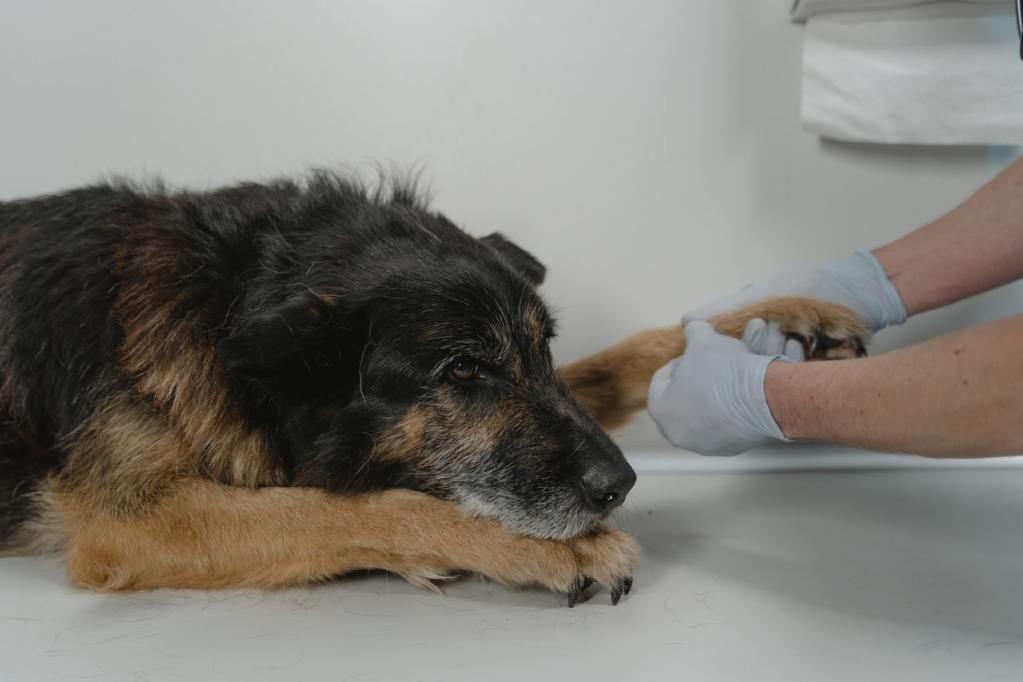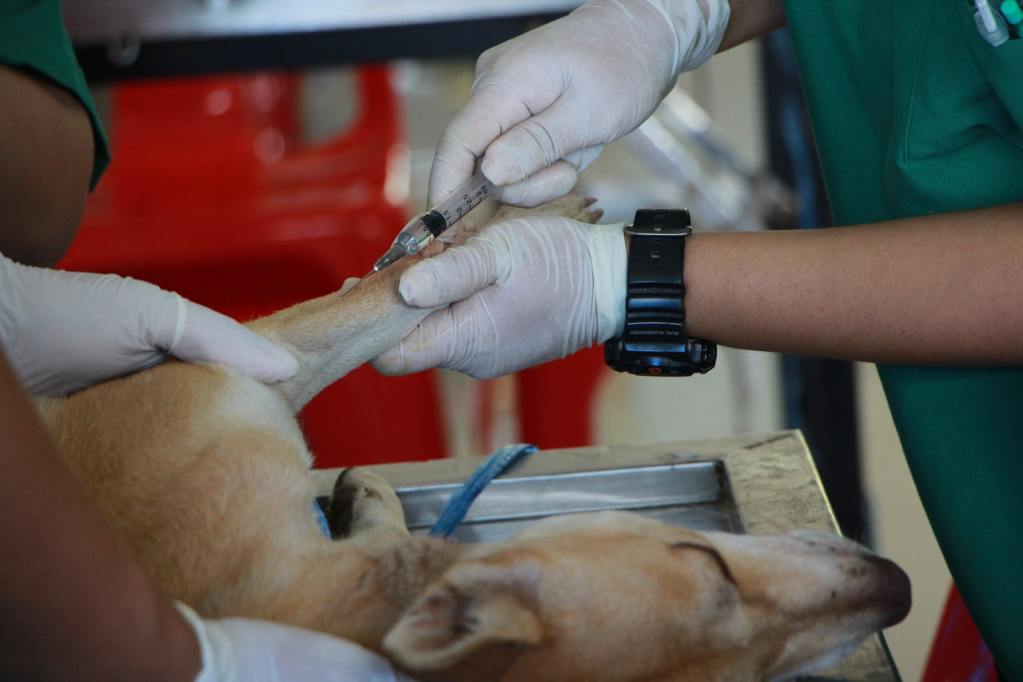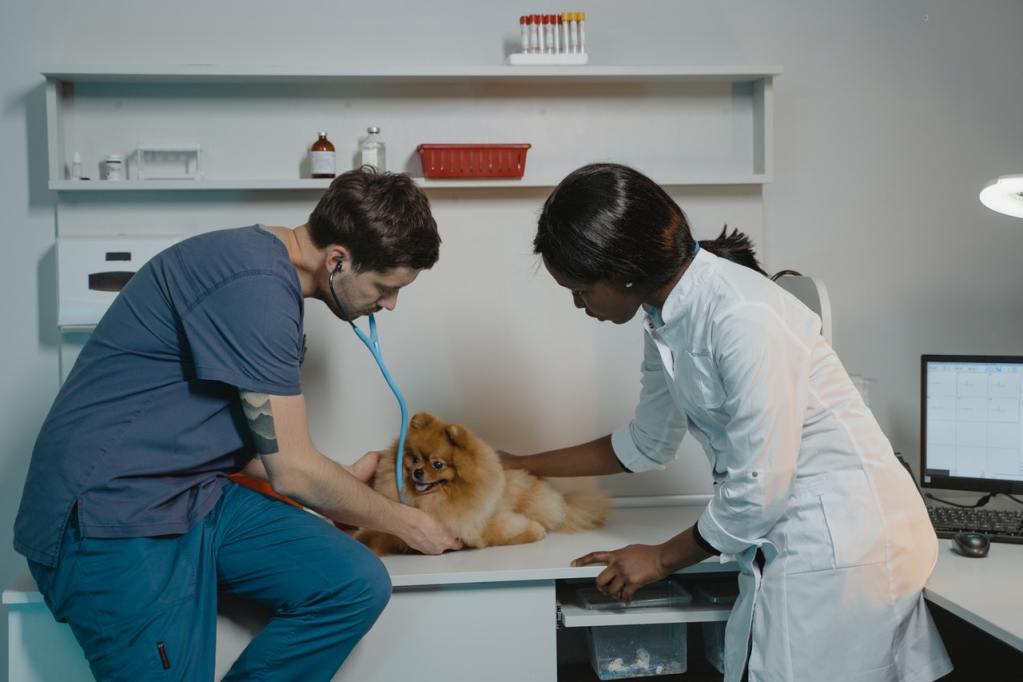When your pet’s health hangs in the balance, your knee-jerk reaction is most likely “Spare no expense.” But roughly 40% of Americans find it difficult, if not impossible, to cover a $400 emergency.
Vet bills are incredibly costly, and if you don’t have pet insurance before surgery or another major expense, you could find yourself in dire financial straits. Fortunately, help is available if you don’t have pet insurance for surgery or other medical expenses. And as it turns out, your pet may not qualify for pet insurance to begin with. Let’s discuss why.

Are preexisting conditions covered?
As of 2020, there were only 20 pet insurance providers in the United States. While the industry is growing in popularity, the limited number of options has its pros and cons. In this case, the main con is that no pet insurance company covers preexisting conditions.
(It’s important to note that a preexisting condition doesn’t make your pet ineligible for insurance. It simply means the insurer won’t reimburse treatment for any preexisting conditions.)
Further complicating matters is the mandatory waiting period instituted by all insurance companies. Waiting periods vary from state to state, ranging from 24 to 48 hours for accident policies and anywhere from 14 days to one year for illness policies. That means you can’t take out a policy after your pet has been diagnosed with a serious illness or sustains an injury in an accident.

Is pet insurance worth the cost?
While not all insurance companies adhere to this policy, most raise your insurance premium as your pet ages or if they’ve been diagnosed with a chronic health condition. Your maximum payouts could be reduced, too. Paying higher premiums each year in addition to potentially smaller payouts can be a major hindrance to some pet parents, which prompts the question: Is pet insurance even worth it?
In 2017, ConsumersAdvocate.org concluded that pet insurance (for routine care) generally isn’t worth the cost, as the annual cost of insurance premiums is on par with what you’d expect to pay for yearly trips to the vet. That being said, it’s incredibly useful in the event of severe illness, injury, or a cancer diagnosis. But what should you do if your pet needs surgery and you don’t have insurance? Here are some options.

Paying for surgery without insurance
For many years, pet parents who couldn’t cover medical expenses were left to make the heartbreaking decision to euthanize their beloved pet. These days, there’s help to be found.
Apply for a pet-specific credit card
CareCredit has a high APR, 17.90% on purchases costing $2,500 or more. But with options such as interest-free periods and both short- and long-term financing, opening up a line of credit with CareCredit can be a lifesaver if your beloved pet needs an emergency operation.
Veterinary schools
Similar to visiting a teaching hospital for treatment, taking your pet to a veterinary school is a low-cost option. Resources such as The American Veterinary Medical Association list local veterinary schools where you can seek treatment for your pet. Once you’ve located a school in your area, call — or check their website — to make sure they have a clinic where veterinary students will treat your pet under the supervision of licensed veterinarians.
The Humane Society
Check out the Humane Society’s list of resources, categorized by state, to find affordable veterinarians, food programs, litter programs, spaying and neutering assistance, and more. Begin with a local search, and if no help is available in your area, don’t be afraid to check a nearby state.
Local ASPCA groups
Animal rescue groups, local shelters, and chapters of the ASPCA frequently offer budget-friendly medical care for pets. To find groups near you, go online and search terms like “affordable veterinary clinics” followed by your place of residence. If you live in a small town, you may want to try several neighboring towns or the nearest large city.
Assistance for specific conditions
If your pet suffers from a specific condition, there are groups you can reach out to for assistance. Some provide aid in the form of supplies, but others offer grants to help offset the cost of medical expenses.
Examples include Diabetic Cats in Need, which provides a one-time offer of insulin and other diabetic supplies, and Fetch a Cure, which offers assistance for Maryland, Virginia, and Washington, D.C.–based pets with cancer.
Work out a payment plan
While not all veterinarians are willing to do so, many vets will help set up payment plans that let you pay off your expenses over time. They might offer to consolidate certain bills, reduce your expenses, or offer discounts if you pay some or all of your bill in cash.
Crowdfund your vet bills
Some wonderfully generous people in the world are willing to donate to save fur babies. Social media is your friend if you go this route. Share your link on Facebook, Instagram, TikTok, Twitter, and more. YouCaring is a great place to start.
The last thing you need when you have an ill or injured pet is to worry about how you’re going to pay their expenses. Relying on one or more of these options will lift a weight from your shoulders, so you can focus on nursing your fur baby back to health.



